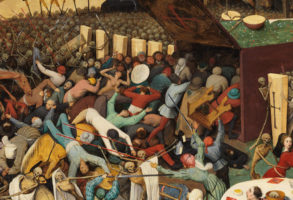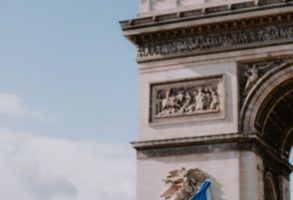Published September 9, 2016
A few days ago I was reading George Orwell’s 1938 book Homage to Catalonia, a gripping account of his role in the Spanish Civil War, first as a journalist and then as a participant. Near the end of the book are these words:
I hope the account I have given is not too misleading. I believe on such an issue as this no one is or can be completely truthful. It is difficult to be certain about anything except what you have seen with your own eyes, and consciously or unconsciously everyone writes as a partisan. In case I have not said this somewhere earlier in the book I will say it now: beware of my partisanship, my mistakes of fact and the distortion inevitably caused by my having seen only one corner of events. And beware of exactly the same thing when you read any other book on this period of the Spanish war.
I am struck by the honesty and self-knowledge of Orwell, in particular his acknowledgement that we all write as partisans and that distortions arise because we see “only one corner of events.”
This is among the hardest things for us to accept—that at best each of us, whether we’re reporting on an event or contemplating metaphysical matters, has only a partial knowledge of the truth. We of course don’t approach it that way. We hold the views we do because at a given moment we believe that they are true, that they reflect the reality of things. If we knew where our views were wrong or incomplete, presumably we would change them.
What Orwell was doing, then, was writing from his one corner of events, with as much integrity as he could; but he knew there were things he could not see, perspectives he could not share, areas of understanding that were open to others but not to him.
This doesn’t mean that objective truth doesn’t exist; it simply means that neither you nor I can fully ascertain it. That is one reason why, as my cherished friend Steve Hayner once told me, “We need to make room for other perspectives. We need to make room for others at the table.”
This doesn’t mean that every view is equally valid, or even that every view has something to teach us. (C. S. Lewis, in The Abolition of Man, shows why subjectivism can be soul-destroying and civilization-destroying.) But it does mean that most of us should hold more lightly to our capacity to perceive truth.
The practical effect of this is that more of us need to be open to accepting that views besides our own have validity, or at least are worth listening carefully to; that we might be wrong, or partially wrong, or less than fully right, even on matters we feel passionately about; and that, as a general matter, we should speak with a touch less certitude and a bit more humility.
Steve was one of the greatest learners I ever met, and he learned from people of totally different histories, experiences, and outlooks. Shortly before he died he told me, “It’s important not to prejudge the people from whom we can learn things.” To do so means you’re refusing to learn. Too many of us seek validation rather than truth, greater confirmation rather than greater knowledge.
That’s the danger of living in an echo chamber, isn’t it, surrounding ourselves only with people who reinforce what we already believe. That’s true whether we’re talking about politics, philosophy, theology, the social sciences, or even the hard sciences. Because the temptation is to see just about everything in partisan terms.
I was exchanging notes with a wise friend about Orwell, and here’s what he told me:
Though I disagree with some fundamentals of Orwell’s beliefs, I respect his integrity and sheer honesty unfiltered by political bias. These days it seems everything starts with bias and partisanship and politics seems more rationalization than argument.
What is striking about Orwell is that even with his awareness of his own limitations, he was not weak, hesitant, or unprincipled. Quite the opposite. He showed impressive courage in telling the truth as he saw it. He was a fierce critic of totalitarianism, in possession of a remarkably independent mind, willing to chastise his own side as well as the other, to be “the wintry conscience of a generation,” in the words of the British writer V.S. Pritchett.
This commitment to seek truth fiercely and bravely, while acknowledging that it is only one man’s truth, is a balance very few of us achieve. Given where things are just now—with our country increasingly riven, our politics despoiled, and the animosity directed against those not in our tribe sky-high—it’s a sensibility we need now more than ever.
Peter Wehner is a senior fellow at the Ethics and Public Policy Center and a contributing opinion writer for the New York Times.








